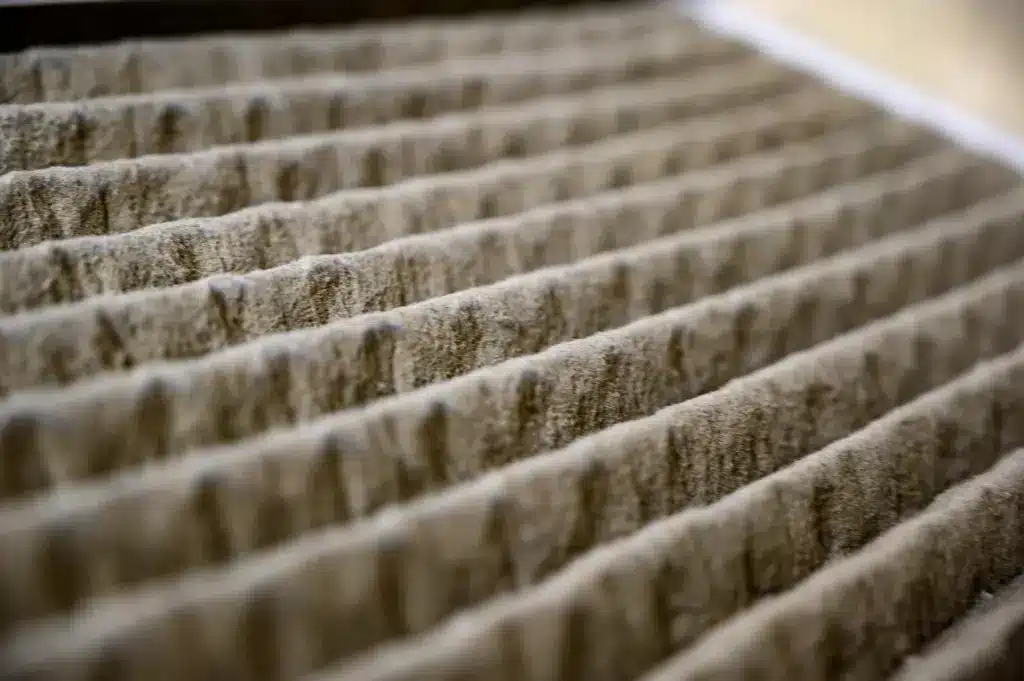
Many people have justifiable concerns about the quality of the air outdoors. You might even check websites like IQAir or AirNow before going outside for a walk or run due to understandable concerns about the safety of the air in D.C.
It's hard to believe that indoor air quality might actually be worse than outdoor air quality, especially on particularly smoggy days. According to the EPA, indoor air quality can potentially be between two and five times worse than outdoor air, which is particularly worrisome given that the average person spends about 90 percent of their time indoors.
Every residential space is different, and factors like ventilation, furniture and materials, mold and cleanliness can have a significant impact on the quality of indoor air. The EPA guide that's used to scare people into taking action to improve their indoor air specifically refers to VOCs (volatile organic compounds) that are off gassed by certain types of materials (paint, carpet, furniture, electronics, cleaning products, etc.) as one the of primary drivers of bad IAQ.
If you're careful about the things that are in your home, VOCs might not be that big of a concern for you. If your home is relatively free of VOCs, then your indoor air quality might not reflect those panic-inducing figures cited by the EPA.
Other activities that put particulate matter in the air (like smoking or cooking) can also contribute to the presence of indoor pollutants.
Should you be concerned about indoor air quality? Absolutely – it can easily be worse than the air outside; but it doesn't have to be. An effective indoor air quality (IAQ) solution can help ensure your household benefits from safe, clean air.
FACTORS THAT CONTRIBUTE TO POOR INDOOR AIR QUALITY
MATERIALS AND ACTIVITIES THAT POLLUTE INDOOR AIR
Many common household items, building materials and furnishings emit VOCs and other pollutants. While it's common knowledge that smoking contributes to poor indoor air quality, many people don't realize cooking can as well. Burning food that smokes puts significant particulate matter into the air, as well as any cooking done with "solid fuels" like charcoal or wood. Gas stoves may also release combustion byproducts into your indoor air. Certain types of high-temperature cooking like frying, sauteing and broiling may also result in fine oil and grease particles becoming airborne and decreasing indoor air quality.
INADEQUATE VENTILATION
Poor ventilation can trap pollutants indoors and prevent fresh outdoor air from diluting the concentration of indoor air contaminants. This can lead to a buildup of pollutants and negatively impact indoor air quality.
BIOLOGICAL CONTAMINANTS
Mold, mildew, dust mites, pet dander and pollen are common biological contaminants that diminish the quality of indoor air in Rockville and D.C.-area homes. These contaminants can cause respiratory issues and allergic reactions in sensitive individuals.
OUTDOOR AIR POLLUTION
While ventilation is important, it's still necessary to acknowledge that pollutants found outdoors can make their way inside. Outdoor air pollution can enter a building through windows, doors and ventilation systems, contributing to poor indoor air quality. This can be a significant issue in urban areas or near industrial facilities.
IAQ SOLUTIONS
There are several common types of home air filtration systems designed to improve indoor air quality by removing pollutants, allergens and other contaminants from the air. Each system has its unique characteristics and is suited to target specific air quality issues. Here are some common types of home air filtration systems, including UV air purifiers:
MECHANICAL FILTERS
Mechanical filters, such as HEPA (High-Efficiency Particulate Air) filters, work by physically trapping particles like dust, pollen, pet dander and mold spores as air passes through the filter. HEPA filters are highly efficient and can capture up to 99.97 percent of particles as small as 0.3 microns. Not every HVAC system can take HEPA-quality filters without modification. If you want this level of air filtration in your home, Vito Services can help.
ACTIVATED CARBON FILTERS
These highly porous filters use activated carbon to adsorb gases, odors and volatile organic compounds (VOCs). Activated carbon filters are often used in combination with mechanical filters to target a broader range of contaminants.
ELECTRONIC AIR CLEANERS
Electronic air cleaners, such as electrostatic precipitators and ionizers, use an electric charge to capture or neutralize airborne particles. Electrostatic precipitators work by creating an electric field that charges particles, which are then collected on oppositely charged plates. Ionizers release negatively charged ions that attach to particles in the air, causing them to clump together and settle out of the air or become trapped in a filter.
ULTRAVIOLET (UV) AIR PURIFIERS
UV air purifiers use ultraviolet germicidal irradiation (UVGI) to inactivate airborne pathogens, such as bacteria, viruses and mold spores, by damaging their DNA or RNA. UV air purifiers typically incorporate a UV-C light source within the air purification system. Although effective at neutralizing microorganisms, UV air purifiers do not remove particulate matter, odors or gases, and should be combined with other filtration methods, such as HEPA filters or activated carbon filters, to ensure a comprehensive approach to air purification.
IMPROVE YOUR HOME'S IAQ WITH THE HELP OF VITO SERVICES
Is someone in your household particularly susceptible to indoor air pollutants – or do you just want to breathe easy when you're inside your home? Vito Services is here to help. Call us today at 301-251-0211 to learn about our indoor air filtration solutions.








